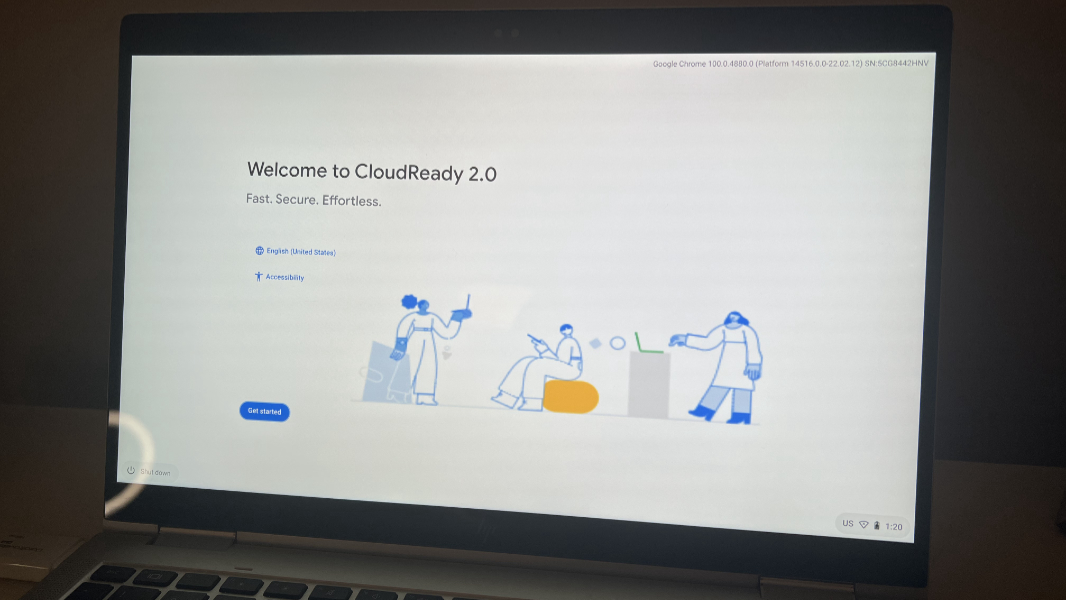Quick Look: Google Chrome OS Flex
- Paul Thurrott
- Feb 16, 2022
-
26

Yesterday, Google announced the first preview of its CloudReady-based project, Chrome OS Flex. So I just had to take a quick look. It’s a weird combination of polished and incomplete, with some features working properly and some missing in action. I suspect your results will vary considerably depending on the hardware. But at least you can test it first via a USB environment if you want.
I, perhaps stupidly, chose not to do that. Instead, I used Google’s instructions to create the installer USB key and then blew away the Windows install on an older HP EliteBook x360 14. The install process took about 5 minutes; I’m pretty sure I spent a bit more time than that just creating the USB installer.
Windows Intelligence In Your Inbox
Sign up for our new free newsletter to get three time-saving tips each Friday — and get free copies of Paul Thurrott's Windows 11 and Windows 10 Field Guides (normally $9.99) as a special welcome gift!
"*" indicates required fields

If you’re familiar with Chrome OS and Chromebooks, you get the idea: Google’s free (for now?) tool turned this once very expensive Windows PC into a very expensive used Chromebook.
And at first glance, I was pretty impressed, since most of the high-level functions seemed to work just fine. Each time I touched a key on the keyboard, for example, it would light up. I could tap Print Screen to take a screenshot, just like in Windows (where Chrome OS uses a special keyboard shortcut). The touch screen works fine, and it seems to know that a smartpen would work (based on a taskbar icon) but I don’t have one to test that. And when I tapped the Mute function key, an onscreen overall indicated that the sound muted. Nice.
But as I used it more, I started to discover the issues. Mute “worked,” but the volume keys did not, and when I tried to play a YouTube video, oops: I found out that sound didn’t work at all. The HP’s fast fingerprint reader is unavailable in Chrome OS Flex, too, forcing me to type my long Gmail password to sign in. Or I can set up a PIN, which can only be 6 characters, not the four I prefer. Oof.

I’ve only just started playing with it, so I don’t have a handle on how well power management might work, or what the battery life is. But it’s clear this is a good idea, assuming Google (and/or its hardware partners) can overcome some of the driver issues. I don’t want to use a PC without sound, obviously. Chrome OS is a nice choice for an older computer that may or may not run the latest software, and that’s especially true if you mostly run web apps.
And while I’m sure this is coincidental, it is perhaps notable that Google shipped this preview on the same day that Microsoft released “new experiences” for Windows 11 that include a preview of Android app compatibility. But where Windows 11 is relegated to 1000 apps from the lackluster Amazon Appstore for Android, Chrome OS Flex should eventually provide access to the Google Play Store. (It doesn’t right now, however.)
Regardless, Chrome OS Flex is also technically more compatible with PC hardware than is Windows 11, since it will run (and maybe run perfectly) on PCs that don’t meet Microsoft’s arbitrary hardware requirements for Windows 11.
I may try installing Chrome OS Flex on a different PC to see whether the hardware compatibility is a bit better. But even in this early stage, it’s an interesting solution, albeit one with a few missing pieces.